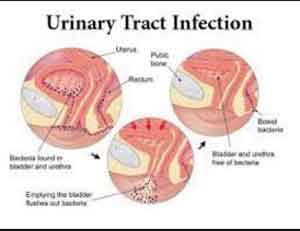- Home
- Editorial
- News
- Practice Guidelines
- Anesthesiology Guidelines
- Cancer Guidelines
- Cardiac Sciences Guidelines
- Critical Care Guidelines
- Dentistry Guidelines
- Dermatology Guidelines
- Diabetes and Endo Guidelines
- Diagnostics Guidelines
- ENT Guidelines
- Featured Practice Guidelines
- Gastroenterology Guidelines
- Geriatrics Guidelines
- Medicine Guidelines
- Nephrology Guidelines
- Neurosciences Guidelines
- Obs and Gynae Guidelines
- Ophthalmology Guidelines
- Orthopaedics Guidelines
- Paediatrics Guidelines
- Psychiatry Guidelines
- Pulmonology Guidelines
- Radiology Guidelines
- Surgery Guidelines
- Urology Guidelines
Ibuprofen can't replace antibiotics for uncomplicated UTIs

A randomized trial done on women has found that ibuprofen is not a suitable alternative to antibiotics for treating uncomplicated urinary tract infections (UTIs) and results in more serious side effects. Women assigned to receive ibuprofen without antibiotics took three days longer to get well on average. This for all practical purposes implies thatIbuprofen can't replace antibiotics for uncomplicated UTIs.
A urinary tract infection (UTI) is an infection in any part of the urinary system like kidneys, ureters, bladder, and urethra. Most infections involve the lower urinary tract — the bladder and the urethra. Women are at greater risk of developing a urinary tract infection than men. More than half of all women experience an uncomplicated urinary tract infection during life and in 20% infections recurs.
Marianne Bolestad and his associates conducted a study to assess whether treatment with ibuprofen was non-inferior to pivmecillinam in achieving symptomatic resolution by day 4.
The study was a double-blind, randomized, parallel group, a multicenter non-inferiority trial which included 383 non-pregnant women aged 18–60 years with symptoms of an uncomplicated urinary tract infection. The patients were consecutively allocated to active treatment with either pivmecillinam 200 mg or ibuprofen 600 mg 3 times a day for 3 days and the patients were asked to note down the adverse effect or complications they faced during the trial. Women's symptoms, bacterial growth from urinary samples, and the occurrence of adverse events including systemic infection or hospitalization were monitored during the study. The primary outcome measure was the proportion of patients who felt cured by day 4 and the secondary outcome measures included the duration of symptoms and the patients’ symptom load for specific symptoms.
In the ibuprofen group, 70 patients (38.7%) felt cured by day 4 versus 131 patients (73.6%) in the pivmecillinam group. For secondary outcomes, the patients in the pivmecillinam group generally felt cured sooner than the patients in the ibuprofen group. Within 2 weeks, 41.4% of the patients in the ibuprofen group had a second consultation and were prescribed antibiotic treatment versus 9.6% in the pivmecillinam group. In the ibuprofen group, 47.0% had 1 or more secondary treatments with antibiotics within 4 weeks, versus 11.2% in the pivmecillinam group.
The study analyzed that Ibuprofen was inferior to pivmecillinam for treating uncomplicated urinary tract infections. More than half of the women in the ibuprofen group recovered without antibiotics. However, pyelonephritis occurred in 7 out of 181 women using ibuprofen.
The study concluded that until the clinicians identify those women who will develop complications, r ibuprofen alone cannot be recommended as an initial treatment to women with uncomplicated UTIs.
The study was published in the journal PLOS One.
For more reference log on to http://dx.doi.org/10.1371/journal.pmed.1002569

Disclaimer: This site is primarily intended for healthcare professionals. Any content/information on this website does not replace the advice of medical and/or health professionals and should not be construed as medical/diagnostic advice/endorsement or prescription. Use of this site is subject to our terms of use, privacy policy, advertisement policy. © 2020 Minerva Medical Treatment Pvt Ltd